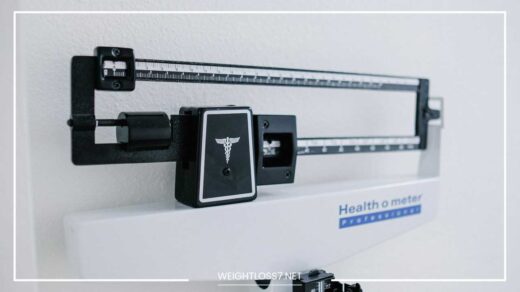Do I Need to Lose Weight?

Lose Weight
Do I Need to Lose Weight? A Guide to Finding Your Healthy Balance
In a world obsessed with “ideal” body types and fad diets, the question “Do I need to lose weight?” can feel overwhelming.
We’re bombarded with images and messages that equate thinness with health, leaving many confused about their own bodies and well-being.
But the truth is, focusing solely on weight loss can be a misleading and ultimately demotivating pursuit. Health and happiness encompass a much wider range of factors. This guide will help you navigate this complex topic, offering insights to:
- Shift the focus: Move beyond the number on the scale and cultivate healthy habits for overall well-being.
- Understand body composition: Explore the limitations of BMI and embrace body positivity.
- Seek guidance from a doctor: Develop a safe and personalized plan, considering your unique needs.
- Embrace long-term changes: Ditch quick fixes and build sustainable healthy habits.
- Recognize individual factors: Consider age, genetics, and how to prioritize what works for you.
This journey is about discovering a healthy balance, not just shrinking a number on the scale.
From Weight Loss to Well-Being: A Paradigm Shift
The constant pressure to lose weight can be exhausting and detrimental to your mental health. Instead, let’s reframe the conversation.
- Body Positivity and Self-Acceptance: Our bodies are incredible vessels that allow us to experience life. Appreciate yours for all it does. Focus on how you feel and move, rather than how you look in a mirror.
- Nourishment, Not Restriction: Food is fuel for your amazing body. Prioritize whole, unprocessed foods that nourish you. Embrace the vibrant world of fruits, vegetables, whole grains, and lean proteins. Explore different cultural cuisines and find healthy ways to satisfy your cravings.
- Joyful Movement: Find activities you genuinely enjoy! Whether it’s dancing to your favorite music, swimming laps in a pool, or hiking through a scenic trail, get your body moving in ways that bring you pleasure.
- Mind-Body Connection: Chronic stress can wreak havoc on your health. Learn stress management techniques like meditation, yoga, or spending time in nature. Prioritize getting enough sleep, as sleep deprivation disrupts hormones that regulate hunger and metabolism.
- Developing Strength: Strength training isn’t just about building muscle mass. It improves bone density, metabolism, and overall health. Incorporate bodyweight exercises, weight training, or resistance bands into your routine.
By prioritizing these healthy habits, you’ll naturally gravitate towards a healthy weight that feels right for you.
Understanding Body Composition: Beyond the BMI
Body Mass Index (BMI) is a common tool used to assess weight status. However, it has limitations. BMI is a simple calculation based on height and weight, and it doesn’t consider factors like muscle mass, bone density, or body composition.
An athlete with a high percentage of muscle mass might have a high BMI but be perfectly healthy. Conversely, someone with a lower BMI might have a high percentage of body fat and be at risk for health problems.
Therefore, it’s crucial to view BMI as a starting point for discussion with your doctor, not a definitive measure of health.
Exploring Body Composition: There are more accurate ways to assess body composition, but they often require specialized equipment or medical professionals. These methods include:
- Bioelectrical impedance analysis (BIA): This uses a low-level electrical current to estimate body fat percentage, muscle mass, and water weight. BIA devices are becoming more accessible for home use, but their accuracy can vary.
- Dual-energy X-ray absorptiometry (DXA): This is a medical scan that provides detailed information about body composition, including bone mineral density and muscle mass. DXA scans are typically used in clinical settings.
Focusing on How You Feel: Ultimately, how you feel is a more important indicator of health than a number on the scale.
Do you have energy throughout the day? Can you move your body without pain? Do you feel strong and capable? Listen to your body’s internal cues and prioritize feeling your best.
Your Healthcare Partner: The Doctor is In
Your doctor is your best resource for determining if weight loss is necessary and creating a safe and effective plan. They can provide personalized guidance based on your unique situation. Here’s what to discuss:
- Overall Health Assessment: Your doctor will consider your medical history, blood pressure, cholesterol levels, and any existing conditions. They may also order blood tests or other tests to assess your overall health.
-
Setting Realistic Goals: Sustainable weight loss is a gradual process, not a quick fix. Together, you and your doctor can set realistic weight loss goals that are achievable and sustainable in the long term. These goals might be weight-related, but they could also focus on other health markers like blood pressure or cholesterol levels.
-
Addressing Underlying Conditions: Certain medical conditions can influence weight gain or make weight loss more challenging. Your doctor can screen for these conditions and recommend appropriate treatment options.
-
Nutritional Guidance: A registered dietitian can create a personalized meal plan that meets your individual needs and preferences. They can help you develop healthy eating habits that are sustainable for life, not just a temporary diet.
-
Physical Activity Plan: Your doctor can recommend a safe and effective exercise program based on your current fitness level and any limitations you might have. They can also help you find activities you enjoy and can stick with over time.
-
Mental Health Support: The pressure to lose weight can be stressful, and sometimes this stress can lead to unhealthy eating habits. Your doctor can connect you with a therapist or counselor who can help you develop healthy coping mechanisms and address any underlying emotional issues related to weight or body image.
Ditch the Fads, Embrace Sustainable Habits
Crash diets and fad exercises might offer quick results, but they’re rarely sustainable. They often lead to feelings of deprivation, frustration, and ultimately, yo-yo dieting, which can be detrimental to your health in the long run.
Here’s how to focus on building healthy habits for the long term:
- Find activities you enjoy: Working out shouldn’t feel like punishment. Explore different activities like dancing, swimming, hiking, biking, or team sports. Find something that brings you joy and that you can see yourself doing consistently.
- Make gradual changes: Don’t try to overhaul your entire lifestyle overnight. Start by making small, sustainable changes that you can gradually build upon over time. For example, swap sugary drinks for water, add a serving of vegetables to your meals, or take the stairs instead of the elevator.
- Cook more at home: This gives you more control over the ingredients in your meals. Experiment with healthy recipes and find ways to make nutritious food taste delicious.
- Don’t deprive yourself: Deprivation can lead to cravings and overeating. Allow yourself occasional treats in moderation. Focus on mindful eating and savor the experience.
- Celebrate non-scale victories: Weight loss isn’t the only measure of progress. Celebrate improvements in your energy levels, strength, mood, or ability to do physical activities you enjoy.
Remember, building healthy habits is a journey, not a destination. Be patient with yourself, celebrate your successes, and don’t be discouraged by setbacks.
Individuality Matters: Age, Genetics, and You
Here are some additional factors to consider on your journey to a healthier you:
- Age: Weight distribution and metabolism change with age. As you get older, focus on maintaining muscle mass and healthy habits to support your overall well-being. Lower-impact activities like swimming or yoga might become more preferable over time.
- Genetics: Genes play a role in body weight and composition. However, lifestyle choices have a significant impact on your health. Focus on the things you can control, like your diet and exercise habits.
- Listen to Your Body: There’s no “one size fits all” approach to health. Pay attention to your body’s signals and what works best for you. Don’t compare yourself to others; focus on your own unique journey.
Embrace Body Diversity: The media often portrays a narrow range of body types as ideal. It’s important to challenge these unrealistic beauty standards. Celebrate body diversity in all its forms.
How Many Calories Do I Need to Lose Weight
While it can be tempting to search for a specific calorie number to aim for, determining the exact number of calories you need to lose weight isn’t a one-size-fits-all answer. Here’s why:
- Individual Needs: Factors like age, gender, weight, height, activity level, and body composition all influence how many calories your body burns.
- Metabolism: This complex process determines how efficiently your body uses energy.
However, there are general guidelines to get you started. Here’s how to approach this:
-
Estimate your Basal Metabolic Rate (BMR): This is the number of calories your body burns at rest to maintain basic functions like breathing and circulation. There are online calculators that can estimate your BMR based on your age, weight, and height.
-
Factor in Activity Level: Most calculators will also ask about your activity level (sedentary, lightly active, moderately active, very active, extremely active). This helps estimate the total number of calories you burn each day, which is called Total Daily Energy Expenditure (TDEE).
-
Create a Calorie Deficit: To lose weight, you need to burn more calories than you consume. A safe and sustainable deficit is generally considered to be 500 calories per day. This translates to a weight loss of 1-2 pounds per week.
Here’s an example:
- Let’s say you’re a 30-year-old female who weighs 150 lbs and has a moderately active lifestyle.
- A BMR calculator might estimate your BMR to be around 1500 calories per day.
- Considering your activity level, your TDEE could be around 2000 calories per day.
- To lose weight, you could aim for a daily calorie intake of around 1500 calories (TDEE) – 500 calories (deficit) = 1000 calories.
Important Considerations:
- This is a simplified example. Consulting a doctor or registered dietitian is crucial for a personalized plan that considers your health history and goals.
- Focus on healthy eating habits, not just restricting calories.
- Aim for a well-balanced diet rich in fruits, vegetables, whole grains, and lean protein.
- Don’t go below a minimum daily calorie intake (around 1200 calories for most adults).
Remember, your doctor is your best resource for creating a safe and effective weight loss plan. They can help you determine a healthy calorie deficit based on your individual needs and goals.
Final Word: It’s About Feeling Your Best, Not Just the Number
Ultimately, the decision of whether or not to lose weight is a personal one. There’s no right or wrong answer. The most important thing is to focus on how you feel, not just the number on the scale. Cultivate healthy habits that nourish your body, mind, and soul.
If you do choose to pursue weight loss, do so in a safe and sustainable way under the guidance of your doctor. Remember, health and happiness are a journey, not a destination. Embrace the process of taking care of yourself and celebrate every step you take towards a healthier, happier you.
This guide has hopefully provided you with valuable insights and tools to navigate the often-confusing world of weight and well-being. Remember, you are worthy of feeling your best at any size.

















